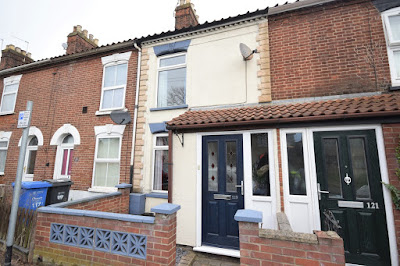How can a teenager buy an investment property in the United Kingdom?
In the UK, legally children under the age of 18 – they are considered a minor - are not allowed to own property or land. Therefore, if you are planning on buying a property for a minor, you can set up a trust until the child is 18 years old and allowed by law to own a property. Alternatively, there is the option of a specific mortgage product that allows parents to buy a property for a minor by setting up a company.
Setting up property a trust
Parents helping their children to buy a property is not new; in reality, it has become the norm for many families as first time buyers struggle to get on the property ladder. So how can parents get ahead of the game and secure a property for their children earlier in their lives? One answer is setting up a trust. There are two types of trust in which a property can be held – a ‘bare’ trust or a ‘constituted’ trust.
A bare trust
Also known as a simple trust, with a bare trust the assets, in this case the property, is held by the trustees until the child is old enough to take over legal ownership. So, the property’s title deeds are held by the trustees until ownership is transferred to the beneficiary. So, for example, the property title is registered to A Bloggs as bare trustee for C Bloggs. However, in every other respect, such as the income earned from the property if it is rented out, belongs to the child as the ‘owner’ of the property.
A constituted trust
This type of trust is more formal and needs a Trust Deed to be drawn up as a legal document. The Trust Deed sets out who the beneficiary is, names the trustees and details how and/or when the trust’s assets and income are distributed. In terms of the property’s title, it would be registered in the trustees’ name(s) on behalf of the beneficiary. For example, A Blogs and B Blogs as trustees for C Blogs.
With a constituted trust, it is essentially the trust that owns the property, not the trustees. How, if and when the child receives any income from the property, or the title of the property is transferred to the beneficiary, largely depends on the Trust Deed’s terms.
Tax implications of a property trust
Whether it’s a bare trust or a constituted trust that holds the property, there are tax implications.
Income tax – with a bare trust or constituted trust, the property is regarded as being owned by the parent (trustee) and will therefore be taxed on any rental profits. Known as parental settlement legislation, parents would be taxed at the top rate of income tax. However, if there is the support of other family members or friends, such as grandparents, they are entitled to ‘gift’ the property or pay the deposit on the property which does not trigger this legislation. That said, should the parents contribute to the running of the property, i.e. paying a repair bill or utility bill, it could be considered a ‘settlement’ and income tax will need to be paid. The best course of action is to use a constituted trust with the benefactor of the child holding sufficient funds in the trust to cover any eventualities.
Capital Gains Tax (CGT) – whilst settlements legislation does not apply, should the property be transferred to anybody other than the beneficiary, the property will be subject to CGT at its market value. With a bare trust, CGT is also not applicable when the property’s legal title is transferred to the beneficiary at the point they reach the age of 18. With a constituted trust, when the property is transferred to the beneficiary at 18 years old, any ‘gain’ can be held over but should the property be sold, the beneficiary would then pay CGT on the gain. The only exception is that principal private residence relief can’t be claimed if the gain has been held over at the time of transfer. Read more


Comments
Post a Comment